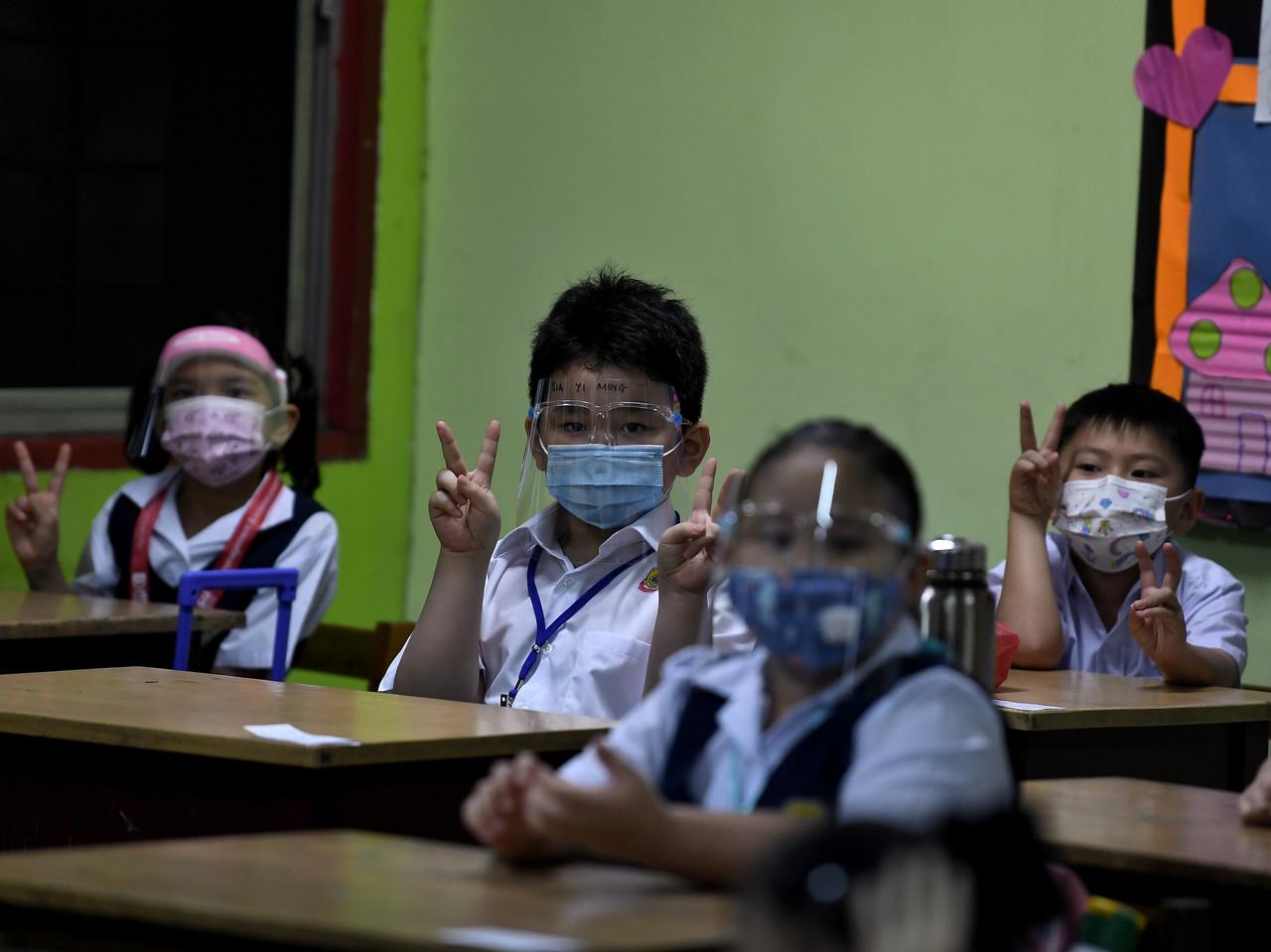Educationists hail return to school as debate continues over health concerns
While many remain concerned over the high number of Covid-19 infections, others especially from the B40 group say they have been struggling to follow home-based learning.
Just In
As hundreds of thousands of children return to school for face-to-face classes today, the debate on whether this is the right move as daily Covid-19 infections remain in the four-digit range continues with those concerned over students’ health on one side and those who have been struggling with home-based learning on the other.
Those concerned over public health also say that parents who have already bought laptops, tablets or smartphones for their children to enable them to follow home-based teaching and learning (PdPR) will now have to fork out more money to buy school uniforms and shoes.
However, many others especially from the B40 or Bottom 40 group in urban, rural and interior areas are relieved that schools are finally reopening as their children have been struggling with poor internet connection and a lack of electronic devices.
Preschoolers and pupils in Standard 1 and 2 return to school today while those from Standard 3 to 6 will return to school on March 8.
As for secondary schools, those located in Johor, Kedah, Kelantan and Terengganu will reopen on April 5 while schools in Melaka, Negeri Sembilan, Pahang, Perak, Perlis, Penang, Sabah, Sarawak, Selangor, Kuala Lumpur, Labuan and Putrajaya will reopen on April 6.
Eager to go back to school
Amirah Haikal, a Form 3 student at a school in the Klang Valley, and her friends, all of whom are from the B40 group, are eager to return to school.
She said most of them were not able to participate in PdPR last year as they did not have smartphones, tablets or laptops.
“We’re relieved school is reopening soon. My mother is a kuih seller who earns about RM60 a day while my father is sick. They can’t afford to buy a computer.
“We have a smartphone which is an old model and gives problems when we use it for too long. Not only that, my mother can only afford to buy an internet data plan worth RM20 which I have to share with my three siblings. It’s barely enough to support our online classes and I am only able to download some schoolwork. I feel I have missed out on a lot,” she said.
According to a study carried out by the education ministry between March 28 and April 2 last year on the preparedness of students for virtual learning, 36.9% of students did not possess any device to enable them to follow online learning.
The study involved 670,118 respondents comprising the parents of 893,331 students, 6% of whom had personal computers, 9.3% of whom had laptops, 5.8% of whom had tablets and 46.5% of whom had smartphones.
Parents want schools to reopen
Anuar Ahmad, a senior lecturer at Universiti Kebangsaan Malaysia’s Centre of Community Education and Well-Being, welcomed the reopening of schools for face-to-face classes, calling the move “long overdue”.
“To tell the truth, many parents have been requesting for schools to reopen. Many teachers want schools to reopen. too.
“Our children have not been in school for nearly a year and have not been taught properly. Many of them are trailing behind in their studies while some have lost their focus and motivation to continue with their studies.
“The decision to reopen schools is a good one and anyway, children are the low-risk group where Covid-19 is concerned,” he said, adding that countries such as France, Germany and Spain which were badly hit by the coronavirus have reopened their schools with strict SOPs in place.
EAnuar said besides the issues surrounding internet access and ownership of mobile devices, many of the parties involved are not ready for the PdPR ecosystem in terms of skills or preparation of suitable teaching materials.
A study carried out by UKM’s education faculty on the readiness of teachers to implement PdPR found that the online teaching methods utilised by the teachers were not very effective because they were not in line with the abilities and learning levels of the students.
According to the UKM study’s findings, 70 to 80% of the teachers reported that getting the attention of their students was the main challenge they faced while conducting PdPR.
“It’s clear that PdPR 1.0 (last year) failed after 10 months of implementation.,” Anuar said.
“Many issues arose, including the teachers’ lack of skills in online pedagogy as they were not trained for this. Apart from that, many parents were either not ready or didn’t have the knowledge to help their children with online learning.”
Hybrid learning
While Anuar is confident that the ministry has taken the necessary measures to ensure the effectiveness of the SOPs implemented in schools to prevent Covid-19 transmission, he said the ministry should also consider implementing hybrid learning, that is a mix of face-to-face and online learning sessions to avoid overcrowding at schools.
“This is the best approach to take in view of the current Covid-19 situation. In fact, it’s not new because in July last year, the ministry introduced the rotational or hybrid learning method,” he added.
National Parent-Teacher Associations Consultative Council president Mohamad Ali Hasan meanwhile said the devices purchased to facilitate e-learning would not go to waste as they could still be used for weekend and holiday learning sessions.
He said schools, in collaboration with Parent-Teacher Associations and alumni, should consider organising online tuition classes over the weekends or during school holidays to help students catch up with their studies.
Former Education Department director-general Alimuddin Mohd Dom had also supported hybrid learning. He was recently quoted as saying that the reopening of schools did not mean that PdPR should be forgotten because a combination of face-to-face and online teaching and learning methods would be beneficial for students.
Subscribe to our newsletter
To be updated with all the latest news and analyses daily.
